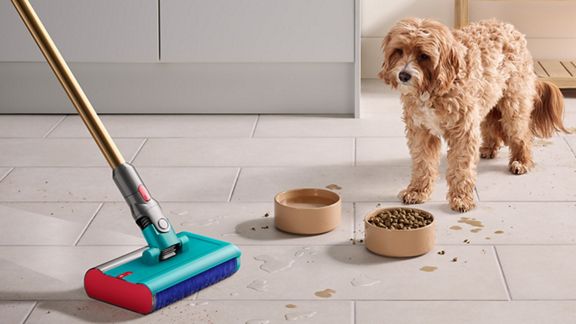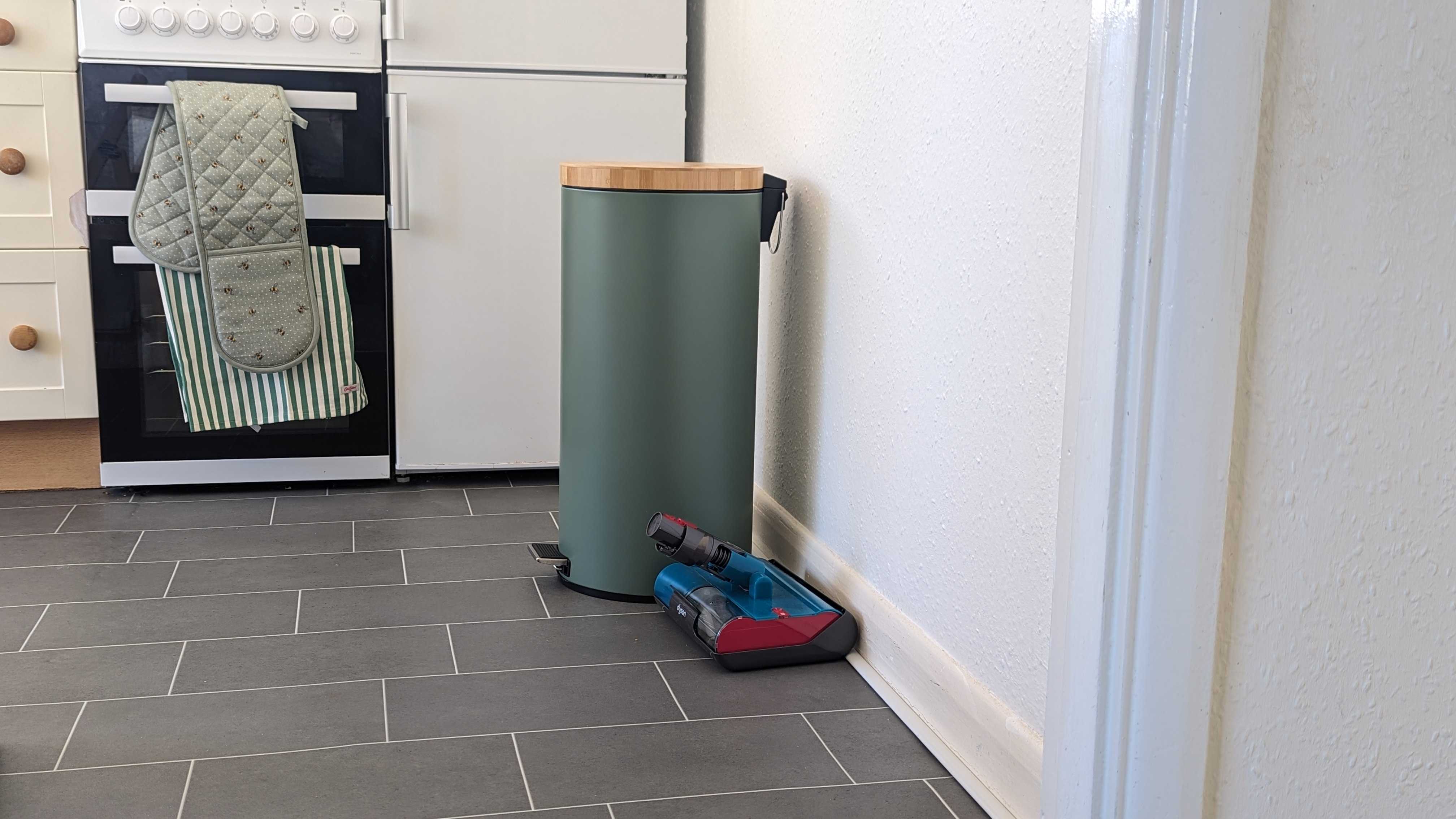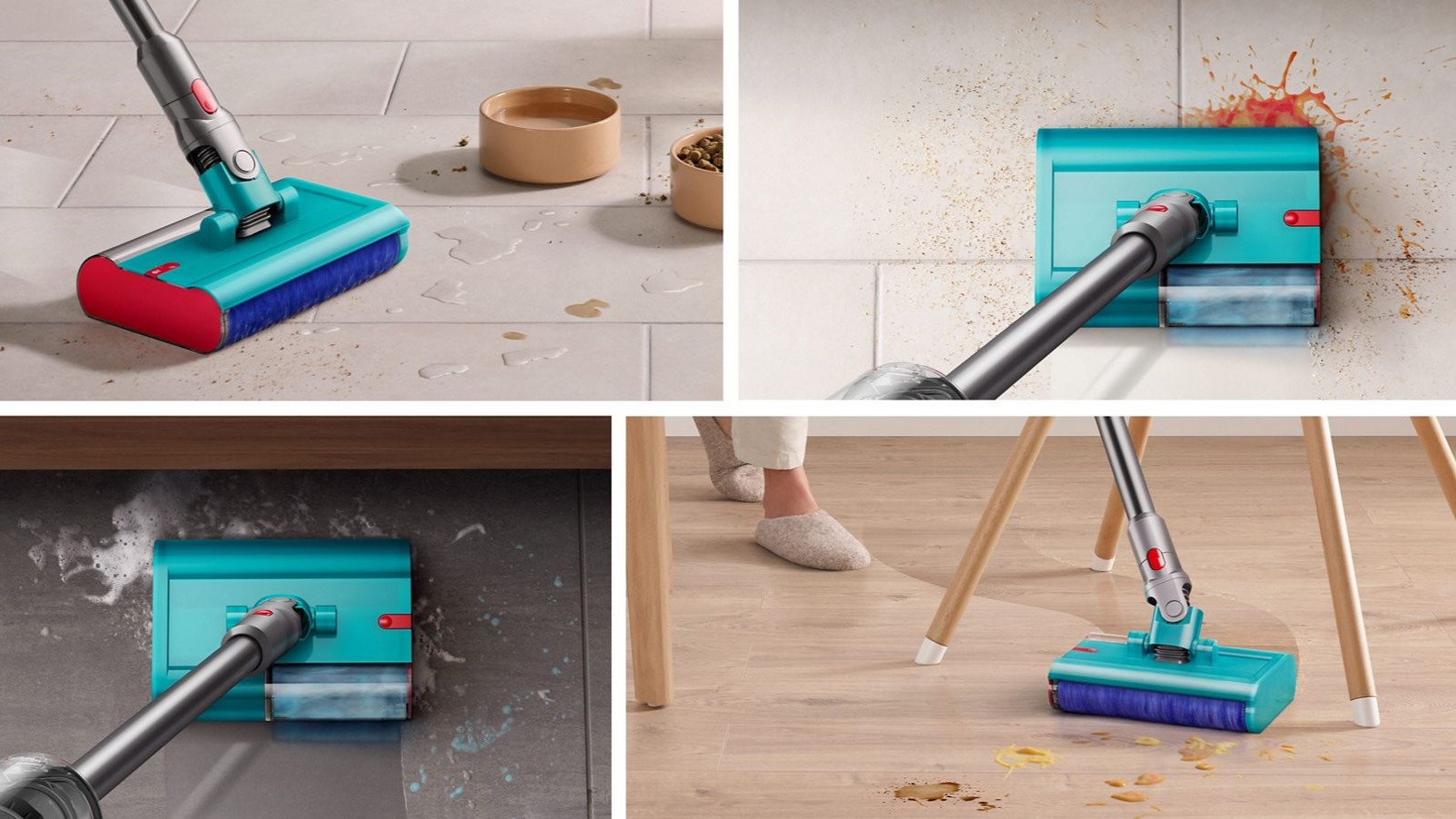Dyson's new vacuum and mop took all the hassle out of cleaning my new flat
Next-level cleaning – I just wish the battery was bigger

Dyson released its Dyson V15s Detect Submarine in the UK this week (March 6), following its rollouts in Australia and later the US last year. It’s the company’s first-ever wet and dry vacuum cleaner (so it doubles as a mop, thanks to its eponymous Submarine head), and I was offered the chance to test it out.
(Update: we now have a dedicated Dyson V15s Detect Submarine review with the results of our testing. There's also a new dedicated wet cleaner in the lineup – read about that one in our Dyson WashG1 review, or find out how the two compare in our Dyson WashG1 vs Dyson V15s Submarine article.)
As it happens, I’ve been moving into a new apartment this week, so how better to test the Dyson V15s Detect Submarine than seeing how it stacks up as a deep-cleaning tool for getting my new home ready before I move all my furniture in?
TL;DR: this cleaning gadget is almost everything I want. It’s powerful, and it's the best Dyson vacuum for cleaning carpets and hard floors, though the battery life and small dirt bin can mean it takes longer to do the job than other vacuums, especially as it doesn’t recharge quickly.
A lean cleaning machine
As a traditional vacuum the Dyson V15s Submarine has all the same bells and whistles as the non-mop equipped version. It comes with all the attachments, including the Motorbar cleaner head (my favorite for carpets), the Fluffy Optic head, and tools for sucking the dust from corners and crevices.
Most importantly, it also comes with the same supreme suction that all Dyson vacs are known for.

The home had been cleaned before we arrived, but you might not know it if you saw the dust this machine ripped from the carpets. In the four carpeted rooms – the bedroom, office, living room and hallway – I managed to fill the canister two-and-a-half times, and I could swear the floors looked a shade lighter when I was finished.
Get daily insight, inspiration and deals in your inbox
Sign up for breaking news, reviews, opinion, top tech deals, and more.
The only downside was the vacuum’s aforementioned battery life. Because of all the dirt it was taking up the V15’s auto power setting must have mostly been running on high, and while this did deliver an amazing clean it meant I needed to recharge the vacuum after around 25 minutes of cleaning, when I was only about two-thirds finished.
To make matters worse, the vacuum is fairly slow to recharge. However, for a cordless vacuum these trade-offs in terms of charging and power are to be expected if you want to keep the device portable and easy to maneuver – which the V15s Detect Submarine certainly is.
Mop to it
Okay, but we already know how good a Dyson is at vacuuming – it’s kinda what they’re known for. But how does its first ever mop compare?
At first glance I was worried that it wasn’t actually doing anything. That’s because the mopped floor is left with only a thin film of water on it after you’ve gone over it – the head is designed to not drench your floors in the first place, and excess dirty liquid is deposited in the Submarine’s dirty-water container.
After feeling that the mop head and floor were indeed damp – and checking that the water supply was fitted properly twice more – I carried on, and saw that the Dyson Submarine mop was indeed mopping up a lot of the messes I’d made while cleaning the kitchen counter and my bathroom earlier in the day.

This was especially true when I slowed down and let the mop head scrub each surface for longer, rather than manually moving it back and forth. The experience is a lot like transitioning from manual toothbrushes to electric ones; you have to learn to let the head do the work rather than your mechanical movement.
I was also glad to see that, because the pipe is completely blocked off, there’s no chance of any water being sucked up into the main bin and causing damage (which, in fairness would have been a massive oversight on Dyson’s part).
However, because of this I found that the mop head wasn’t as good at capturing debris chunks as the other attachments. Once the floor was dry (it dried fairly speedily) I had to go back over it with the fluffy head to pick up any remaining dirt. (Update: the brand has now launched a dedicated wet cleaner, the Dyson WashG1, which promises to be better at tackling solid debris, although that one's not suitable for carpets.)
The only thing I can’t speak to is how long it can mop for. I went over my modestly sized kitchen and bathroom, with the readout on the V15s Submarine’s screen saying I’d only used about 10% of the water tank. If your home has more hard floors that need mopping I expect that you'll need to refill the water tank at least once.
A new best of the best?

If you already have a Dyson V15 Detect Absolute then I wouldn’t recommend upgrading to the V15s Detect Submarine. Apart from the Submarine mop attachment you won’t get anything extra out of your machine – which is why I’m a little surprised that Dyson doesn’t sell the mop attachment separately (unless there's a hardware upgrade or two under the hood that’s required for the V15s to function).
But if you have an older Dyson vacuum that’s in need of a refresh, or you’re looking to transition from a rival brand, this is a model I’d seriously recommend considering over Dyson’s more traditional vacuums if you mop a lot (or want to mop more).
Alternatively, picking up one of the other best vacuum cleaners from our recommended guide and one of the best robot vacuums that can mop for you could be the way to go.
You might also like

Hamish is a Senior Staff Writer for TechRadar and you’ll see his name appearing on articles across nearly every topic on the site from smart home deals to speaker reviews to graphics card news and everything in between. He uses his broad range of knowledge to help explain the latest gadgets and if they’re a must-buy or a fad fueled by hype. Though his specialty is writing about everything going on in the world of virtual reality and augmented reality.